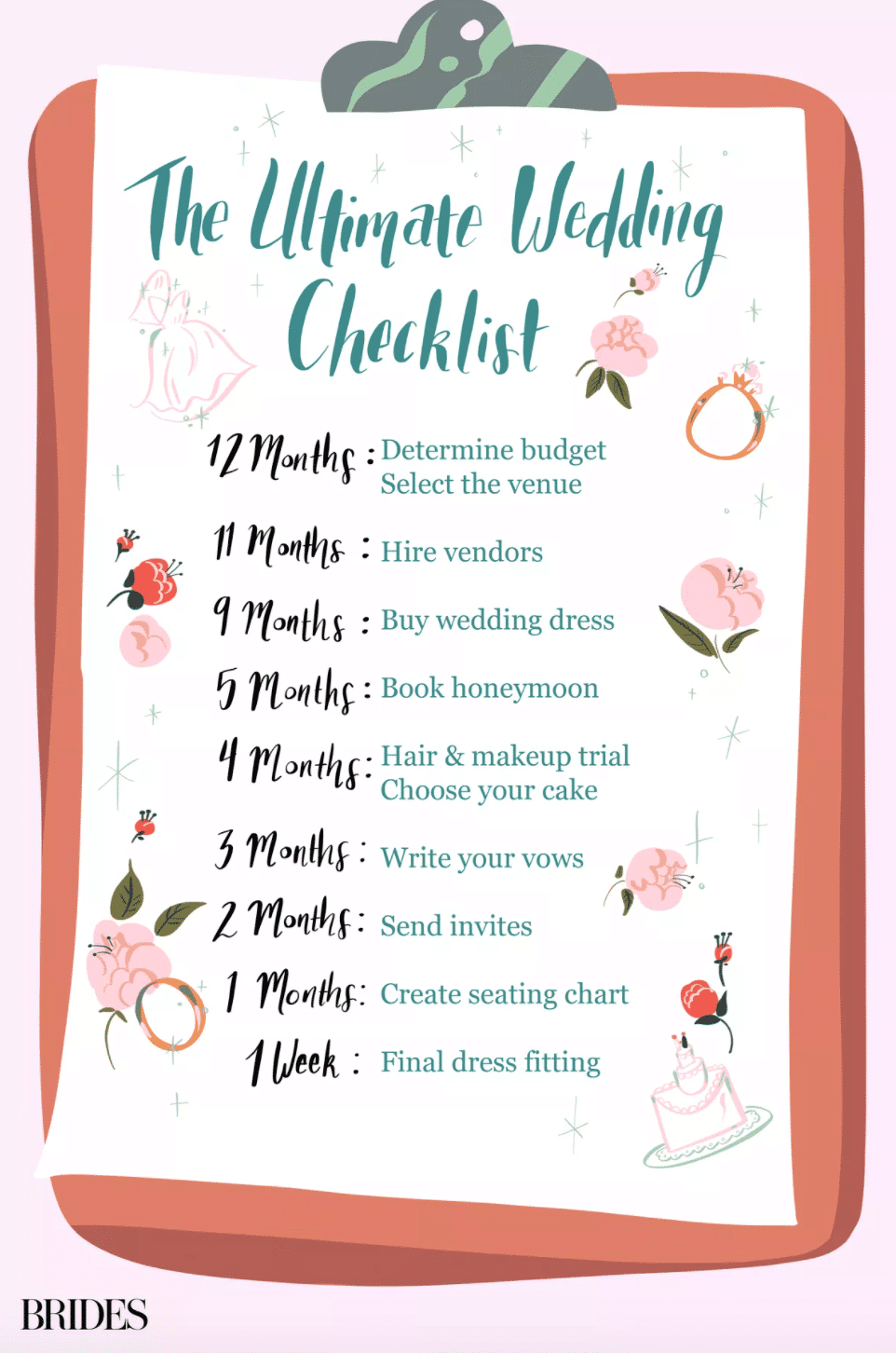Tips For Planning Your Wedding
November 30th, 2023
Introduction
Your wedding day is one of the most significant moments of your life, and meticulous planning is the key to ensuring it unfolds seamlessly.
From choosing the perfect venue to finding the right vendors, creating a well-thought-out timeline is essential for a stress-free and memorable celebration.
In this guide, we'll explore some essential tips for brides to consider when establishing timelines for their big day.
-
Start Early: Begin the planning process as early as possible. Venues and popular vendors can get booked up quickly, so securing your desired options well in advance is crucial. Starting early allows you to have a wider range of choices and helps you avoid last-minute stress.
-
Venue Selection: Choosing the right venue sets the tone for your entire wedding. Confirm your venue early on to secure your preferred date. Once you have a venue locked in, you can move forward with planning other crucial details like catering, decor, and guest accommodations.
-
Set a Realistic Budget: Establish a budget early in the planning process and prioritize your spending. Knowing your financial constraints will guide your decisions on everything from the guest list to the choice of vendors. Stick to your budget to avoid unnecessary stress as the big day approaches.
-
Create a Detailed Timeline: Work closely with your wedding planner or coordinator to create a detailed timeline for the entire day. This should include everything from the start of hair and makeup to the moment you say your vows and the last dance. Having a well-organized timeline ensures that everyone involved is on the same page, reducing the risk of delays or confusion.
-
Vendor Coordination: Communicate with your vendors regularly and confirm all details well in advance. Ensure that they are aware of the schedule and have everything they need to deliver their services seamlessly. This includes photographers, florists, caterers, and entertainment. Confirm arrival times, setup requirements, and any specific requests you may have.
-
Hair and Makeup Trials: Schedule hair and makeup trials ahead of time. This not only ensures that you're happy with your chosen look but also helps you estimate the time needed on the wedding day. Factor in extra time for any unexpected delays to keep the morning stress-free.
-
Dress Fittings and Alterations: Plan your dress fittings and alterations with ample time to spare. This allows for any necessary adjustments and ensures that your dress fits perfectly on the big day. Consider scheduling a final fitting close to the wedding date to accommodate any changes in your body shape.
-
RSVP Deadline: Set a clear RSVP deadline for your guests. This will help you finalize the guest list, provide accurate numbers to vendors, and ensure that everyone has a seat on your special day.
-
Rehearsal Dinner: Plan a rehearsal dinner the night before the wedding. This provides an opportunity for everyone in the bridal party to familiarize themselves with the venue and the ceremony flow. It's also a chance for you to relax and enjoy the company of close friends and family before the big day.
-
Backup Plans: Be prepared for the unexpected. Whether it's unexpected weather changes, vendor issues, or other unforeseen circumstances, having backup plans in place will help you stay calm and focused on enjoying your day, no matter what comes your way.
Conclusion:
Creating a well-structured timeline is an essential aspect of planning a wedding. By starting early, communicating effectively with vendors,
and considering every detail, you can ensure that your wedding day unfolds smoothly and becomes the magical experience you've always dreamed of.
Remember, meticulous planning is the key to a stress-free and unforgettable celebration of love.
Good luck with a beautiful wedding day and a lifetime of happiness!
David J Gillan Wedding Photographer







